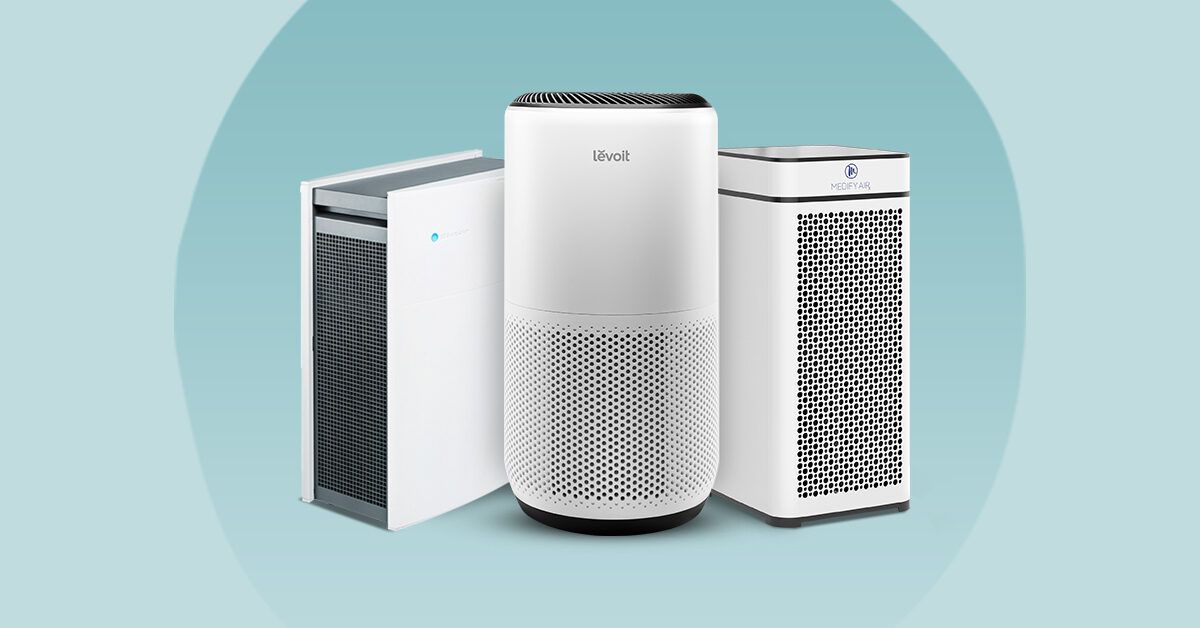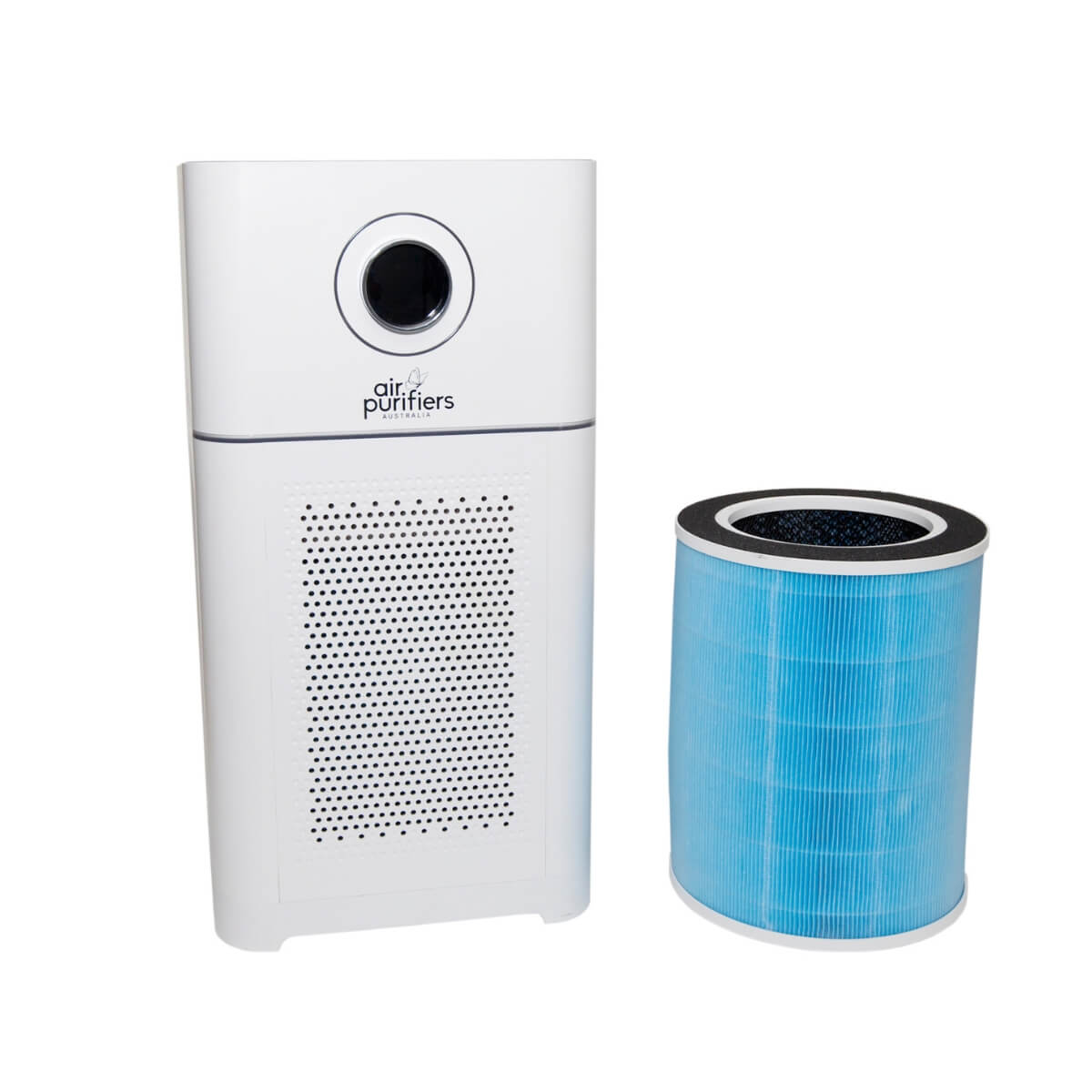Featured
Table of Contents
- – Understanding Allergies and Triggers
- – Can Air Purifiers Help with Allergies?
- – The Scientific Research Behind Air Purifiers ...
- – Are Air Purifiers Right for You? Variables to...
- – Taking advantage of Air Purifiers for Allergies
- – Beyond Air Purifiers: A Multi-Pronged Techniqu...
- – Living a Breath Easier Life with Allergies
:max_bytes(150000):strip_icc()/SPR_CowayAirmega400SApp-EnabledSmartTechnologyAirPurifier_HW_004.jpg-efbf4db7757e43dbbec187d41a82aff7.jpg)
For allergic reaction sufferers, springtime blooms and fluffy pet dogs can bring more sniffles and sneezes than pleasure. Interior allergens like allergen, family pet dander, and pollen can ruin your respiratory system, leaving you feeling unpleasant. Air purifiers are frequently proclaimed as an option, promising cleaner air and remedy for allergic reaction signs. But are air cleansers really worth the financial investment for allergic reaction patients? This extensive guide explores the scientific research behind air cleansers, their effectiveness for allergies, and the variables to consider when deciding.
Understanding Allergies and Triggers
To recognize the duty of air purifiers, let's initial look into allergies and their triggers:
- The Sensitive Feedback: Allergies take place when your immune system panics to a safe compound, like plant pollen or dust mites. This response sets off the launch of histamines, causing allergic reaction symptoms like sneezing, coughing, scratchy eyes, and a dripping nose.
- Usual Irritants: Indoor allergens include allergen, pet dog dander, mold and mildew spores, pollen that drifts inside your home, and even cockroach irritants. These airborne bits can aggravate your respiratory tracts and trigger allergy symptoms.
Can Air Purifiers Help with Allergies?
Air purifiers work by reeling in air, filtering out toxins, and launching cleaner air back into the room. Here's just how they can possibly profit allergy victims:
- Capturing Irritants: HEPA (High-Efficiency Particulate Air) filters, a typical type made use of in air purifiers, are extremely effective at recording air-borne irritants like dust mites, pet dog dander, and plant pollen. By eliminating these triggers from the air you take a breath, air cleansers can help in reducing allergy symptoms.
- Improved Air Quality: Air cleansers can also get rid of other toxic irritants from the air, such as smoke, dust, and unstable natural compounds (VOCs) This general improvement in air high quality can be beneficial for allergy patients that are sensitive to these additional triggers.
The Scientific Research Behind Air Purifiers and Allergies
Studies have actually shown that air purifiers can be handy in lowering allergy signs. Right here's an appearance at some essential study findings:
- A 2019 evaluation released in the journal "Current Allergy and Bronchial asthma Reports" concluded that air cleansers with HEPA filters can be reliable in reducing allergy signs and boosting high quality of life for individuals with sensitive rhinitis (hay high temperature)
- A 2018 research published in the journal "Record of Allergic Reaction, Bronchial Asthma & Immunology" located that utilizing an air purifier with a HEPA filter in the room dramatically minimized allergen irritant levels and enhanced rest quality in people with asthma.
Nonetheless, it is very important to keep in mind that study likewise recommends some restrictions:
- Air Purifier Insurance Coverage: Air purifiers are most efficient in the space where they are put. Their influence on irritants in other parts of your home may be very little.
- Intensity of Allergies: While air purifiers can help, they might not be a full option for severe allergies. Drugs and other allergy monitoring strategies might still be essential.
Are Air Purifiers Right for You? Variables to Consider
Below are some key elements to take into consideration when making a decision if an air purifier deserves it for your allergies:
- Intensity of Allergies: If your allergic reactions are moderate and well-controlled with medication, an air purifier may not be essential. Nonetheless, for those with modest to extreme allergic reactions, an air purifier can be a valuable device in handling symptoms.
- Kinds of Irritants: Take into consideration the major triggers for your allergies. Air cleansers are most reliable for airborne allergens like dust mites, pet dog dander, and pollen. They may not be as useful for allergens like mold that grow on surfaces.
- Way of life and Environment: If you have family pets, reside in a location with high plant pollen counts, or have concerns about indoor air top quality, an air purifier can be helpful.

Taking advantage of Air Purifiers for Allergies
If you determine to purchase an air purifier for allergies, here are some pointers for optimizing its efficiency:
- Choose a HEPA Filter: Seek an air purifier with a HEPA filter licensed to catch bits as little as 0.3 microns.
- Right Size for the Space: Guarantee the air purifier has a Clean Air Distribution Price (CADR) that is suitable for the size of the area you intend to use it in.
- Placement Matters: Position the air purifier in the space where you invest the most time, such as your room.
- Routine Filter Maintenance: Change HEPA filters according to the producer's instructions to preserve optimum performance.
- Integrate with Other Approaches: Air purifiers are not a one-size-fits-all option. Combine them with various other allergic reaction monitoring approaches like medication, routine cleansing, and allergen-proof bedding.
Beyond Air Purifiers: A Multi-Pronged Technique to Allergy Administration

While air cleansers can be a valuable tool in your allergic reaction arsenal, they are not a wonder drug (If you're looking to buy an Air Purifier then Air Cleaners Australia is the best destination.). A comprehensive technique that integrates air filtration with various other techniques is essential to accomplishing lasting allergic reaction relief. Right here are some added techniques to think about:
- Drug: Antihistamines, decongestants, and nasal corticosteroids, prescribed by your physician, can effectively handle allergic reaction signs.
- Allergy Testing and Immunotherapy: Determining your specific allergens through allergic reaction screening can lead the way for immunotherapy, a therapy that aids desensitize your body immune system to allergens with time.
- Air Quality Monitoring: Routine cleansing with a HEPA-filtered vacuum and allergen-specific cleaning products can dramatically reduce dirt termites, pet dog dander, and various other irritants in your house.
- Controlling Moisture: Mold thrives in humid environments. Making use of a dehumidifier can assist regulate humidity levels and protect against mold development, a common indoor allergen.
- Lifestyle Adjustments: If you have allergies to plant pollen, staying inside throughout height pollen periods and bathing after hanging out outdoors can assist reduce direct exposure.
- Bedding and Surfaces: Framing pillows and bed mattress in allergen-proof covers can substantially lower dust mite exposure. Routinely washing bed linens in warm water helps eliminate irritants.
Living a Breath Easier Life with Allergies
Keep in mind, taking care of allergic reactions is a continual procedure. By recognizing your triggers, implementing a multi-pronged strategy, and possibly incorporating an air purifier into your strategy, you can dramatically reduce allergy signs and symptoms and breathe much easier.
Additional Factors To Consider:
- Consulting a Medical professional: If your allergic reactions are serious or otherwise well-controlled with medicine and lifestyle changes, consult an allergist for tailored recommendations.
- Air High Quality Monitoring: Think about using an air quality screen to track allergen degrees in your home and change your management strategies as necessary.
- Long-Term Financial investment: A top quality air purifier can be a lasting investment in your health and wellness and well-being.
By taking a proactive method and taking on a combination of these approaches, you can produce a healthier and allergy-friendly setting, enabling you to delight in a breath easier life.
Table of Contents
- – Understanding Allergies and Triggers
- – Can Air Purifiers Help with Allergies?
- – The Scientific Research Behind Air Purifiers ...
- – Are Air Purifiers Right for You? Variables to...
- – Taking advantage of Air Purifiers for Allergies
- – Beyond Air Purifiers: A Multi-Pronged Techniqu...
- – Living a Breath Easier Life with Allergies
Latest Posts
Fighting the Mold And Mildew Menace: Are Air Purifiers Well Worth It?
The Facts About Is It Safe To Automate Cleaning For Your Yeti Rambler? Revealed
The smart Trick of Are Yeti Ramblers Compatible With Dishwashers? That Nobody is Talking About
More
Latest Posts
Fighting the Mold And Mildew Menace: Are Air Purifiers Well Worth It?
The Facts About Is It Safe To Automate Cleaning For Your Yeti Rambler? Revealed
The smart Trick of Are Yeti Ramblers Compatible With Dishwashers? That Nobody is Talking About